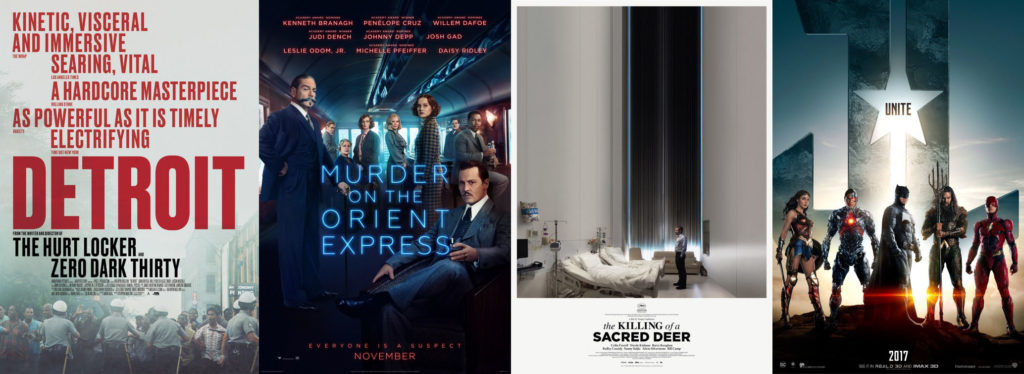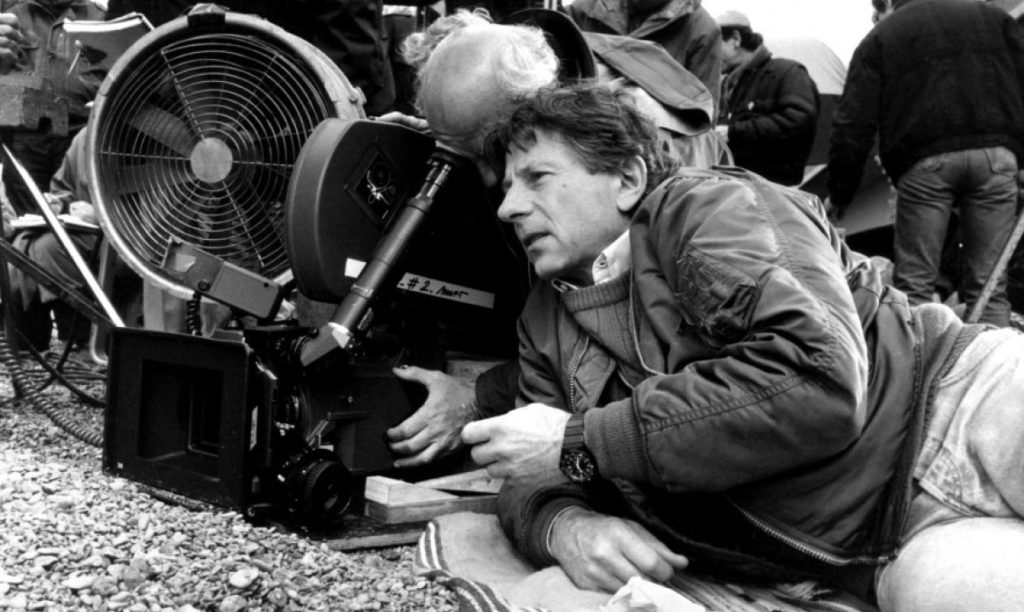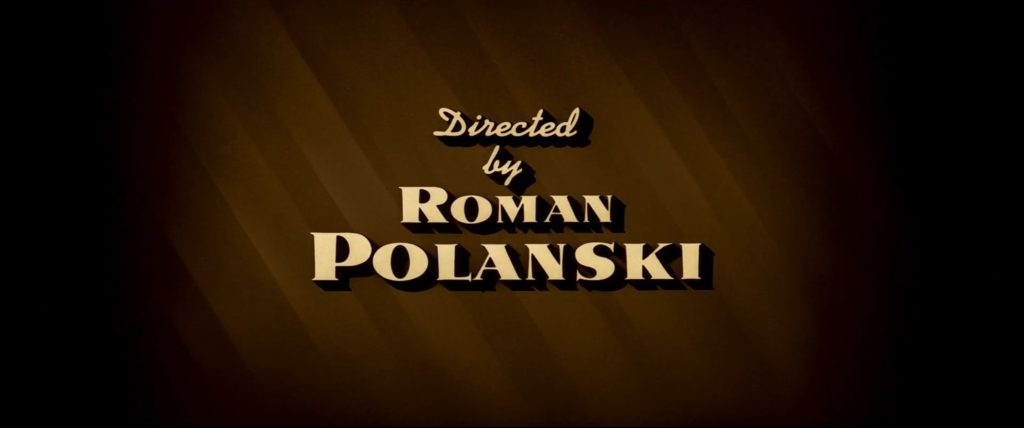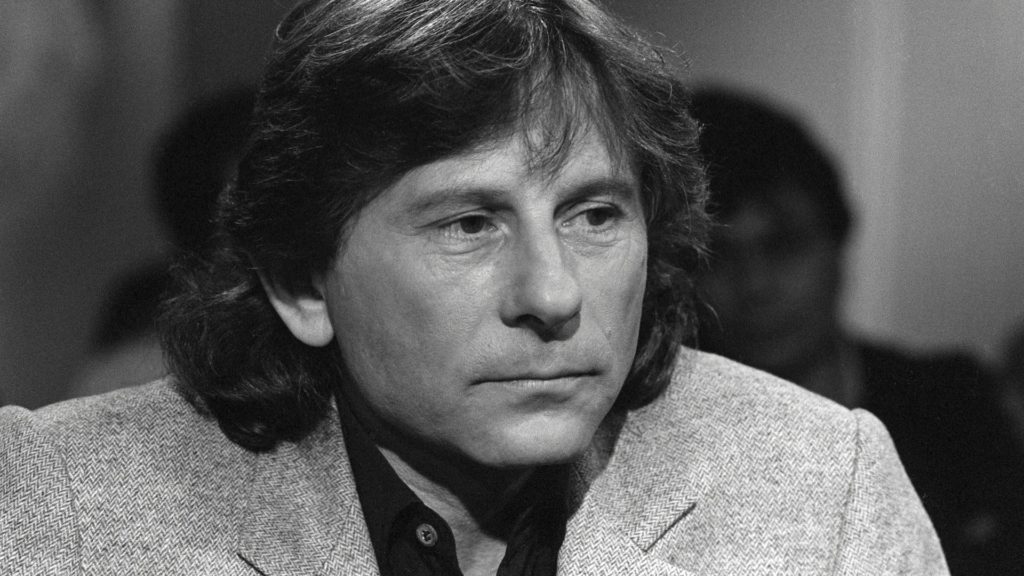
It was over a year ago when we first asked Emma if she'd like to join us on Hell Is For Hyphenates. She was interested, and immediately flagged Polanski as her filmmaker of choice. After that it was simply a matter of finding a time when our schedules aligned.
What a difference a year makes. It's not like Polanski was a less controversial figure in 2016, but the conversation around abusers in the film industry has certainly changed. 2017 will be remembered as the year of #MeToo, and we've already seen a few of the biggest names in cinema experience swift and immediate ostracism after allegations of wrongdoing surfaced.
Did this mean it was the worst time to talk about the films of Roman Polanski, or the best? Ours is a show that enthusiastically embraces auteur theory, approaching film through the prism of the author (who is often, but not always, the director). The whole point of Hyphenates is to celebrate the artists that we discuss… could we still do that?
We do our best to answer that question in the show. Our middle segment is entirely devoted to the question of whether we can separate the art from the artist, a concept that has been memed into parody, but is clearly an important issue that we're yet to collectively come to grips with.
And hey, we also talk about the actual films a bit too. Whether we struck the right tone of not will be in the eye of the beholder - or the ear of the belistener - so leave a comment or get in touch with your own thoughts. Either way, we do look at an undeniably impressive body of work, one that includes all-timers such as Rosemary's Baby, Chinatown and The Pianist. There is more than one canonised classic in this oeuvre, and there's plenty of gold there to be unearthed.
We also find time amongst all that to look back at some of the new releases of this month. So if you've seen, or if you plan to see, Kathryn Bigelow's historical thriller Detroit, Kenneth Branagh’s Agatha Christie adaptation Murder on the Orient Express, Yorgos Lanthimos’s modern Greek tragedy The Killing of a Sacred Deer, or DC superhero team-up Justice League, you'll find even more in this episode with which to agree or disagree.

Further reading:
- Detroit is Kathryn Bigelow’s first film since Zero Dark Thirty. To hear us talk about her films in more depth, listen back to our Bigelow show from December 2013.
- Broken by the New York Times, and then in this New Yorker piece by Ronan Farrow. Farrow has written subsequent articles about Harvey Weinstein, which can be read here.
- We also refer to other recent controversies in the show, and you can read about the allegations against Louis CK here in the New York Times, and the initial Kevin Spacey accusation that opened the floodgates here on BuzzFeed.
- There was a very interesting Twitter thread from Moon director Duncan Jones. Kevin Spacey appears in Moon, and Jones discusses why he is reluctant to distance himself from the film as a whole in this chat.
- There was a fascinating interview with Jerry Seinfeld on The Late Show with Stephen Colbert. Seinfeld and Colbert discuss whether they can still listen to Bill Cosby's old stand-up routines, and it's definitely worth watching both parts, as Seinfeld appears to have had a revelation in the commercial break. Watch the first segment here, and the second segment here.
- There's some great analysis from Sarah Lyall and Dave Itzkoff writing for the New York Times. Their piece “Charlie Rose, Louis CK, Kevin Spacey: Rebuked. Now What Do We Do With Their Work?†can be read here.
- Arguably the best piece written on the subject of art-from-the-artist is “What Do We Do With the Art of Monstrous Men?†by Claire Dederer writing in The Paris Review. If you only read one piece, make it this one.
- If you have a spare hour, watch legendary Australian broadcaster Clive James talking to Roman Polanski back in 1983. This one hour documentary, recorded after Polanski's self-imposed European exile, is definitely worth a watch.
- Emma mentions Karina Longworth's popular You Must Remember This She covered Roman Polanski, Sharon Tate and Charles Manson back in 2015 in a series of 12 shows that begun with this one.
- In her blog It’s Better in the Dark, Rochelle discusses what it was like to engage with Polanski’s works in preparation for this episode. Read it here!
- On her website The Westwood Digest, Emma blogs about preparing for and recording this episode. Read it here!
- Roman Polanski is, of course, of French Polish descent. If you're unfamiliar with how to use French polish, check out this handy DIY video from Woodworkers Journal.
Special thanks to Stephen Baker for his help with the recording.
Outro music: score from Chinatown (1974), composed by Jerry Goldsmith
The latest episode of Hell Is For Hyphenates, featuring Emma Westwood talking the films of Roman Polanski, can be heard on Stitcher Smart Radio, subscribed to on iTunes, or downloaded/streamed directly from our website.







